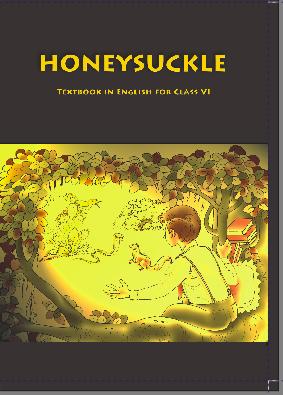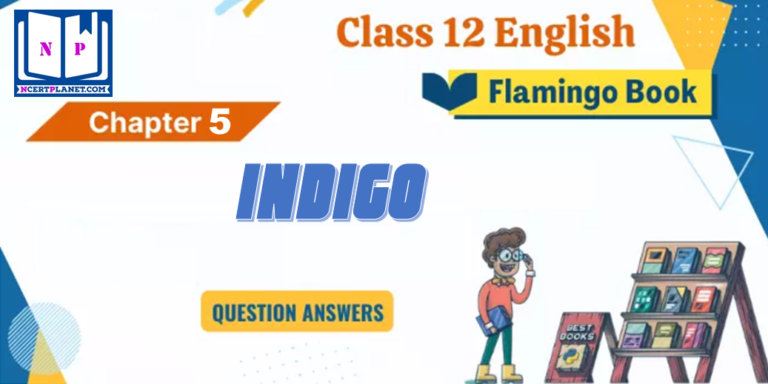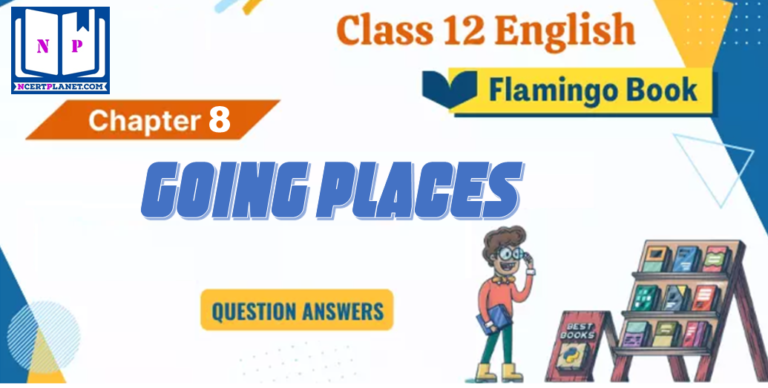Class 6 English - Honeysuckle
Poem 5 - Where do all the Teachers Go

Top Block 1
NCERT Solutions Class 6 English Honeysuckle Poem 5 Where do all the Teachers Go
QUESTIONS FROM TEXTBOOK
For a little child, his/her teacher is special, not an ordinary person. So he wonders where the teachers go after the school hours.
He wants to know if they live in houses and also wash their clothes. He wonders if they feel relaxed at home, wear pyjamas and watch TV. He is also eager to know if the teachers have their parents at home, and if they too were naughty at school, spelt the words wrongly, ate chocolates in the class, and were told to stand in the corner as punishment.
The child compares his own habits with those of the teachers in their childhood. They too must have lost their prayer book, wore dirty jeans and scribbled on the desktops.
The child plans to follow his teacher to find out what he/she does at home. He will then record that in a poem. The teacher will read that poem to other children as a fun.
SUMMARY IN HIND
एक छोटे बच्चे के लिये उसका शिक्षक कोई साधारण व्यक्ति नहीं, विशेष व्यक्ति होता है। उसे हैरानी होती है कि स्कूल की छुट्टी होने के पश्चात शिक्षक जाते कहाँ हैं।
वह जानना चाहता है कि शिक्षक भी क्या घरों में रहते हैं तथा अपने वस्त्र स्वयं धोते हैं। वह सोच नहीं पाता कि क्या शिक्षक घर पर सहज हो जाते हैं, पैजामा पहन कर टी.वी. देखते हैं। वह यह जानना चाहता है कि क्या उनके भी माता-पिता घर पर होते हैं, क्या वे भी अपने विद्यार्थी जीवन में शैतानी करते थे, शब्द गलत लिखते थे, चाकलेट कक्षा में चबाते थे, तथा उन्हें दण्ड स्वरूप कक्षा के एक कोने में खड़ा कर दिया जाता था।
बच्चा अपनी आदतों की तुलना शिक्षक के बचपन की आदतों से करता है। हो सकता है शिक्षक भी अपनी प्रार्थना पुस्तिका खो देते हों, गंदी जीन्स पहनते हों तथा डेस्क के ऊपर कुछ लकीरें खींचते हों।
बच्चा योजना बनाता है कि वह शिक्षक के पीछे उसके घर तक जाकर उनकी गतिविधियों की जानकारी लेगा। फिर वह जानकारी को कविताबद्ध कर देगा। शिक्षक उस पुस्तक को मजा लेने के लिये दूसरे बच्चों को पढ़कर सुनायेगा।
HINDI VERSION OF THE POEM WITH COMPREHENSION
1.
Where do all the teachers go
When it’s four o’clock?
Do they live in houses
And do they wash their socks?
Do they wear pujamas
And do they watch TV?
And do they pick their noses
The same as you and me?.
Word-Notes: Four o’clock-the time when the school breaks up for the day, Socks(here) clothes कपड़े। Pick their noses-clean their nose with the little finger ऊंगली से नाक साफ करना।
बालक सोचता है कि स्कूल जब सायं 4 बजे बंद हो जाता है, तो उसके शिक्षक कहाँ चले जाते हैं? क्या वे सामान्य घरों में ही रहते हैं और अपने वस्त्र भी स्वयं धोते हैं? क्या वे कपड़े बदलकर पैजामा पहन लेते हैं और फिर आराम से टी वी देखते हैं? क्या वे भी उसी प्रकार से नाक साफ करते हैं जैसे आप और हम करते हैं?
Questions:
Read the following questions and choose the most appropriate option from the ones given below:
- What is the significance of four o’ clock?
(a) The teachers go to the market
(b) The teachers give tuitions to their students
(c) The school closes for the day and the teachers go to their homes
(d) The school starts for second shift.
- What is the child curious about?
(a) He wants to know how the teachers live at home
(b) He wants to know about the ways of the world
(c) He wants to know what teachers used to do as students
(d) He wants to know why teachers get angry.
- For the child, his teacher is ……
(a) a special person
(b) very cruel
(c) very kind
(d) very talented.
- What does the phrase pick their noses’ mean?
(a) Clean their noses with handkerchief
(b) Clean their noses with water
(c) Hurt their noses with sharp nails
(d) Clean their noses with the little finger.
- What does the word ‘watch’ mean here?
(a) To measure
(b) To see
(c) To supervise
(d) To control.
Answer :
- (c)
- (a)
- (a)
- (d)
- (b)
2.
Do they live with other people
Have they mums and dads?
And were they ever children
And were they ever bad?
Did they ever, never spell right
Did they ever make mistakes?
Were they punished in the corner
If they pinched the chocolate flakes?
Word-Notes: With other people-in a joint family संयुक्त परिवार। Mums and dads-parents, माता – पिता। Bad-naughty नटखट।
क्या शिक्षकगण अन्य व्यक्तियों की भाँति संयुक्त परिवार में अपने माता-पिता के साथ ही रहते हैं? क्या कभी वे भी बच्चे थे और साथ ही शैतान भी थे। क्या वे कभी शब्द लिखने में गलती भी किया करते थे? क्या कक्षा में बैठकर चाकलेट चबाने पर उन्हें दण्डस्वरूप एक कोने में खड़ा कर दिया जाता था?
Questions:
Read the following questions and choose the most appropriate option from the ones given below:
- Who does they refer to here?
(a) Children(b) Teachers
(c) Teachers and children
(d) Non-teaching staff of the school.
- The child wants to make sure whether his teacher also had………
(a) The same pleasant experience as a school boy(b) The same unpleasant experience as a school boy
(c) a house to live in
(d) many classmates during his school days.
- The child in this poem seems to be……….
(a) sincere
(b) talkative
(c) naughty
(d) simple.
- What does the expression “They pinched the chocolate-flakes’ mean?
(a) They ate chocolate
(b) They touched chocolate
(c) They stole chocolate
(d) They purchased chocolate.
- Which of the following words means opposite to punished’?
(a) Given
(b) Praised
(c) Hurt
(d) Rewarded.
Answer :
- (b)
- (b)
- (c)
- (a)
- (d)
3.
Did they ever lose their hymn books
Did they ever leave their greens?
Did they scribble on the desktops
Did they wear old dirty jeans?
I’ll follow one back home today
I’ll find out what they do
Then I’ll put it in a poem
That they can read to you.
Word-Notes: Hymn books -a collection of devotional songs भजानों की पुस्तक। Leave their green-spread about cooked green vegetables, हरी सब्जियाँ फैलाना। scribble-scrawl घसीट कर लिखना। Follow-go after पीछे – पीछे जाना।
बालक हैरानी से सोचता है कि क्या उसके शिक्षक गण भी अपने विद्यार्थी जीवन में भजनमाला पुस्तक खो देते थे और क्या वे हरी सब्जियों को न खाकर इधर-उधर फेंक देते थे? क्या वे भी अपनी डेस्क पर कुछ शब्द खरोचकर लिख देते थे और क्या वे गंदी जीन्स पहनकर स्कूल जाते थे?
मैं आज ही एक शिक्षक के पीछे-पीछे चुपके से उसके घर जाकर पता लगाऊँगा कि वे घर पर क्या करते हैं। फिर मैं उनके क्रियाकलापों को कविता में लिख दूँगा जिसे वे तुम्हें पढ़कर सुना देंगे।
Mddle block 1
Read the following questions and choose the most appropriate option from the ones given below:
- What are hymn books”?
(a) A collection of patriotic songs
(b) A collection of short stories
(c) A collection of folk songs
(d) A collection of devotional songs. - What does the expression leave their greens’ mean?
(a) Spread about green vegetables
(b) Throw green vegetables on floor
(c) Buy green vegetables
(d) Eat green vegetables. - Which one of the following mistakes the child does not make?
(a) He makes spelling mistakes
(b) He scratches on the desk top
(c) He beats his classmates
(d) He soils his clothes. - What does the child finally decide?
(a) To follow his teacher
(b) To live with his teacher
(c) To study sincerely
(d) To leave all the bad habits. - What does the word ‘scribble’ mean?
(a) Cry
(b) Scrawl
(c) Jump
(d) Make dirty.
Answer :
- (d)
- (a)
- (c)
- (a)
- (b)
QUESTIONS FROM TEXTBOOK
WORKING WITH POEM
Questions 1:
Answer these questions.
(i) Why does the poet want to know where the teachers go at four o’clock?
Answer :
The poet thinks that his teachers are not ordinary persons. He looks upon them as super or special human beings. So he wants to know where they go and what they do after the school hours.
(ii) What are the things normal people do that the poet talks about?
Answer :
Normal people return to their home, change their clothes, wash their faces and become fresh. They also rest for a while. Some of them go for shopping or help the children with their homework.
(iii) What does he imagine about
(a) where teachers live?
(b) what they do at home?
(c) the people with whom they live?
(d) their activities when they were children in school?
Answer :
(a) The boy imagines that teachers live in joint families.
(b) They wash their socks, change into pyjamas and then watch TV.
(c) They live with their parents.
(d) When they were at school going age, they too spelt the words incorrectly, chewed chocolates in the class and were punished.
(iv) Why does the poet wonder if teachers also do things that other people do?
Answer :
The boy regards his teachers as special persons. They are his ideals, perfect in every respect. So he wonders if they also do things that other people do.
(v) How does the poet plan to find out? What will he do once he finds out?
Answer :
The poet plans to get first hand information about his teacher. He plans to follow one of his teachers and find out what he/she does. Then he will record his findings in a poem for the benefit of other children.
Questions 2:
What do you think these phrases from the poem mean?
- punished in the corner.
- leave their greens.
Answer :
- The teacher keeps an eye on all the students. In case he notices a boy eating chocolates in the classroom or making spelling mistakes, he asks the boy to stand in the corner as punishment.
- Some of the children don’t eat their lunch in full. They leave cooked green vegetables here and there or throw them into the dustbin.
MORE QUESTIONS SOLVED
SHORT ANSWER TYPE QUESTIONS
Questions 1:
What does the child think about his/her teacher?
Answer :
For the child, the teacher is an extraordinary or mysterious person.
Questions 2:
What does he want to know about his teacher? Why?
Answer :
The child is inquisitive or curious to know about the routine of his teacher.
Questions 3:
How does the child compare his own daily activities with that of his teacher?
Answer :
The child goes back home in the afternoon, changes his uniform, picks his nose, watches T.V. and lives with his parents.
Questions 4:
What makes him envy his teacher?
Answer :
The child is mischievous. He spells the words wrongly. He is punished if he ever steals a chocolate. He scribbles on the desk and soils his jeans. His teacher is free from such an unpleasant life.
Questions 5:
How does the child finally decide to observe his teacher’s activities at home?
Answer :
The child plans to follow his teacher to his home and find out what he does. He will then write it in a poem for all children to read and understand.
LONG ANSWER TYPE QUESTIONS
Questions 1:
What does a little child think of his/her teacher? What does the child decide to explore?
Answer :
For a child a teacher is some important or special person. He cannot think of his/her teacher as an ordinary being. He becomes curious to know how his teacher lives in his house or spends his time or wears casual dress. He wonders whether the teacher has his parents or he too was once a school going child. He also wants to know whether the teacher was also naughty who made mistakes and was punished. He decides to find out the truth by going to the teacher’s home.
Questions 2:
What is the mystery about the child’s school teacher? How does it plan to discover the truth?
Answer :
For a little kid his teacher is an ideal and mysterious person. He compares his own way of living with that of the teacher. He wants to know whether the teachers too live in houses, wash their socks and watch TV. Further if the teacher too used to make spelling mistakes, do mischief and was punished at school. The wondering child decides to go to the teacher’s home to discover how he lives. Then he plans to put all his information in a poem.
TEST YOUR SKILLS
- How does the poet view his teachers?
- How do you view your teachers?
- Explain the following expressions:
- Pick their noses
- Leave their greens.



